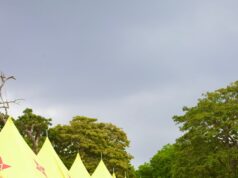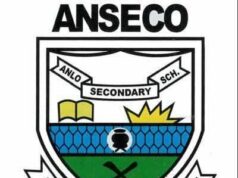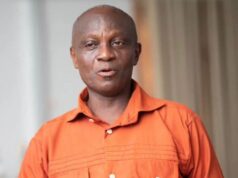A former Chairman of the University of Ghana, Dr Ishmael Yamson, has advocated the amendment of Clause 35(7) of the 1992 Constitution to ensure consistency of economic policy.
The Clause, he said, provides that “as far as practicable, a government shall continue and execute projects and programmes commenced by the previous government.”
However, he noted, the same Constitution also stated that within two years after assuming office, the President shall present to Parliament a coordinated programme of economic and social development policy, including agricultural and industrial programmes at all levels and in all regions in Ghana.
“So, there is a reality that until this Constitutional provision is removed or amended, we will have no consistency of economic policy, which is critical for sustained economic policy focus and development,” Dr Yamson said at the opening session of the 71st New Year School and Conference, which begun yesterday.
New Year School
The three-day event on the theme: “Attaining Ghana Beyond Aid. Prospects and challenges,” is being attended by a cross-section of the society including government functionaries, politicians, academia, civil society organisations, representatives from the metropolitan municipal and district assemblies (MMDAs), students, among others.
Dr Yamson observed that all previous Presidents had not taken advantage of the provision and discarded everything their predecessors did, “including discontinuing projects and programmes often at great cost to the country.”
He stated that the provision clearly made it mandatory for all Presidents to choose not to continue with economic policies of their predecessors, “and Ghana Beyond Aid, a product of this provision may suffer the same fate.”
Winner takes all
Dr Yamson also stated that the Constitution gave the President exclusive powers of appointments in the public sector, which made a “winner takes all” possible.
“This leads to a democracy of exclusion because only party-related supporters find their way to all levels of the public sector administration,” he said, stressing that it did not promote professionalism, competence and efficiency in the public sector management.
“The winner takes all model means that only party supporters will be appointed to hold senior offices in government and the public sector instead of the ablest officials.
“This kind of democracy can only breed corruption, cronyism and kleptocracy. If Ghana must succeed as a truly democratic state then we must start confronting the issues at the roots, that is, the provisions in the Constitution and in the practise of our democracy,” Dr Yamson said.
“We are witnesses to the situation where even caterers in the School Feeding Programme rotate with administrations.
“If the Ghana Beyond Aid Charter is to become a national agenda and if we must improve the governance and the quality of management in the public sector, this Constitutional provision should also be reviewed to promote inclusiveness,” he stated.
Practice of democracy
Dr Yamson noted with concern that the practice of democracy in the country had become a major barrier to economic transformation.
“Whether it is about district assembly elections, or party primaries or parliamentary and presidential primaries and elections, the cost has become astronomical and with it the unfortunate consequence of widespread corruption,” he observed.
Besides the high cost of participating in elections, there was also the “dangerous development of extreme polarisation in the political space which now prevents any attempt to build national consensus behind anything including economic policy and direction.
Welcoming the guests, the Vice-Chancellor of the University of Ghana, Prof. Ebenezer Oduro Owusu, explained that the New Year School and Conference was a major platform that gave members of the university community a unique opportunity to network and dialogue with members of the public.























